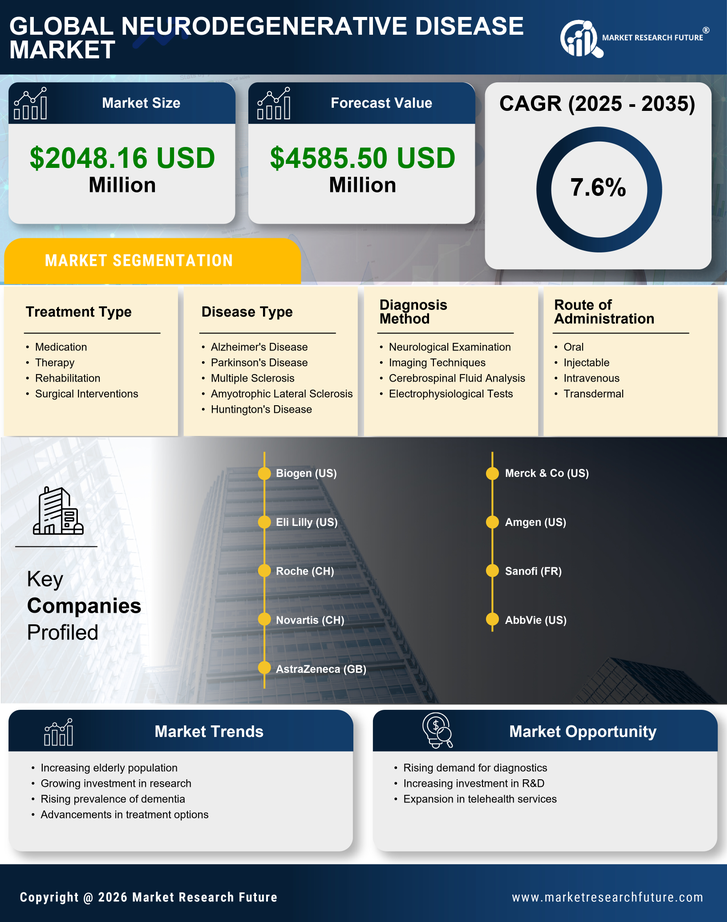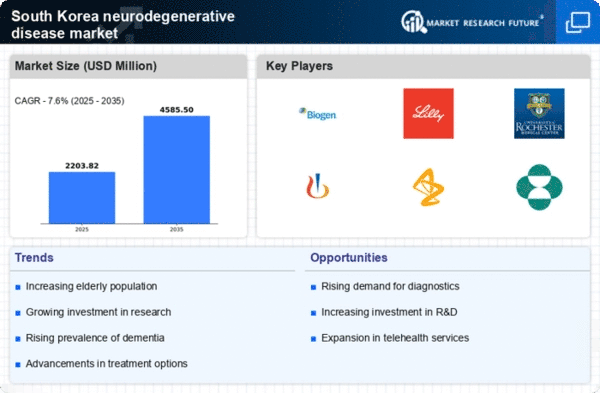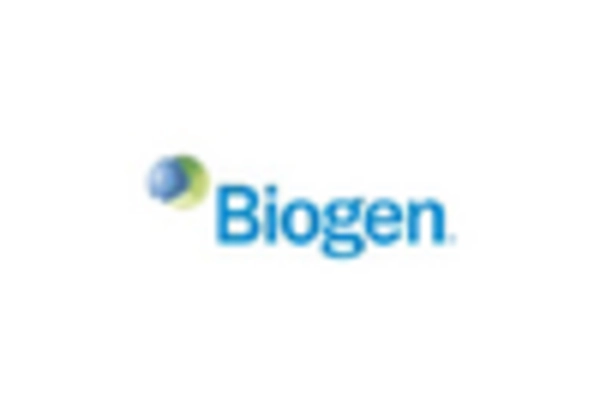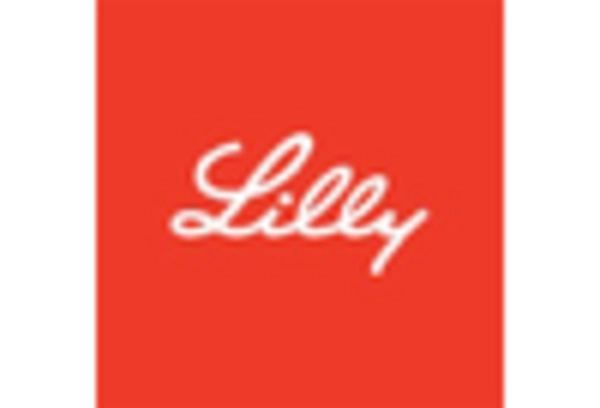Emerging Therapeutic Approaches
The neurodegenerative disease market is witnessing a surge in emerging therapeutic approaches, including gene therapy and stem cell research. These innovative treatments hold the potential to alter the course of diseases that were previously deemed untreatable. In South Korea, several clinical trials are underway, exploring the efficacy of these novel therapies. The market is likely to experience significant growth as these therapies progress through clinical stages and receive regulatory approval. The promise of new treatment modalities not only excites the medical community but also offers hope to patients and their families, thereby driving demand in the neurodegenerative disease market.
Growing Awareness and Education
There is a growing awareness of neurodegenerative diseases among the South Korean population, which is driving demand for better treatment options. Educational campaigns aimed at both healthcare professionals and the public are crucial in promoting understanding of these conditions. As awareness increases, patients are more likely to seek medical advice and treatment, thereby expanding the market. The neurodegenerative disease market must capitalize on this trend by providing accessible information and resources to patients and caregivers. This heightened awareness could lead to earlier diagnosis and intervention, ultimately improving patient outcomes and market growth.
Government Initiatives and Funding
Government initiatives aimed at addressing neurodegenerative diseases are pivotal for the market's expansion. In South Korea, the government has allocated substantial funding for research and development in this field, with investments reaching approximately $200 million annually. These initiatives focus on enhancing public awareness, improving healthcare infrastructure, and supporting clinical trials for new therapies. The neurodegenerative disease market stands to gain from these efforts, as increased funding can lead to breakthroughs in treatment options and better patient care. Furthermore, collaboration with academic institutions and private sectors is likely to foster innovation and accelerate the development of effective therapies.
Advancements in Diagnostic Technologies
Technological advancements in diagnostic tools are transforming the neurodegenerative disease market. Innovations such as neuroimaging techniques and biomarker identification are enabling earlier and more accurate diagnoses. For instance, the introduction of PET scans and MRI technology has improved the detection of neurodegenerative conditions, allowing for timely intervention. The market is likely to benefit from these advancements, as they not only enhance patient outcomes but also reduce long-term healthcare costs. As diagnostic capabilities improve, the demand for targeted therapies and personalized treatment plans is expected to rise, further stimulating market growth in South Korea.
Aging Population and Increased Incidence
The aging population in South Korea is a critical driver for the neurodegenerative disease market. As life expectancy rises, the prevalence of neurodegenerative diseases such as Alzheimer's and Parkinson's is expected to increase significantly. Current estimates suggest that by 2030, approximately 1.5 million individuals in South Korea will be living with dementia, which represents a substantial rise from previous years. This demographic shift necessitates enhanced healthcare services and innovative treatment options, thereby propelling market growth. The neurodegenerative disease market must adapt to these changing demographics by focusing on early diagnosis and effective management strategies to cater to the growing patient population.
















